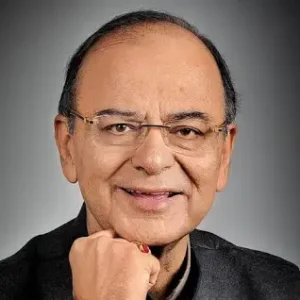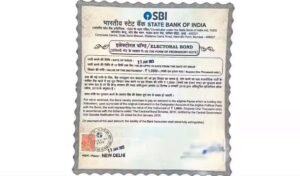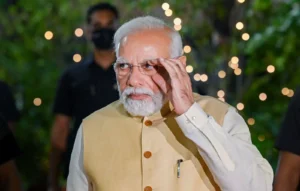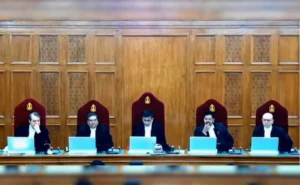The Supreme Court has strike down the scheme of giving donations to political parties through electoral bonds. The 5 members Constitutional Bench of the Supreme Court has ordered the State Bank to submit the complete details of the bonds sold so far to the Election Commission by March 6.
What is Electoral bond?
Electoral bonds are a method of donating money to political parties. This Electoral bond can be obtained by any citizen or company from selected branches of State Bank of India. Through it, they can donate to any political party of their choice without revealing their identity and the political party’s identity.
When was it implemented? –

This Electoral bond scheme was introduced by BJP government in 2017. It was announced in the parliament by the former Finance Minister of India, Arun Jaitely during 2017 budget session and implemented legally in 2018. Under this scheme, electoral bonds of any denomination between Rs 1,000 and Rs 1 crore can be purchased from designated branches of State Bank of India.
How the electoral bonds works?
These Electoral bonds can be purchased in SBI in the months of January, April, July and October. Normally it is available only 10 days of those months but may extend to 30 days only in the year when Lok Sabha elections are likely to take place. The validity of election bonds is only 15 days. They can only be used to donate to political parties registered under the Representation of the People Act.

The donor have to buy a bond from SBI according to the amount they decided to donate. Then the donor can give that bond to any political party of his wish with in 15 days of purchase. Now, the political party can redeem it through SBI.
It was stated in the government’s plan that there is no need to declare the information about the donor and the donations received in the form of Electoral bonds in public. However, the Union government can get all the information about the donor and the receiving political party through SBI.
Allegation of opposition parties
It has been alleged that the ruling government can influence the donor and interrupt the funding of opposition parties. Also keeping details of donations through electoral bonds secret will increase black money flow, because the scheme paves the way for large private and corporate firms to provide funding anonymously.

According to the annual report submitted by political parties to Election commission for the year 2022 – 2023, BJP received Rs. 1300 crore through Electoral bond and Congress receives 171 crores through this method.
Supreme Court’s verdict
A 5-judge constitutional bench headed by Chief Justice DY Chandrachud heard the case. While all the election procedures are transparent, it is necessary that the information related to election funds is also transparent. Refusal to disclose this is against the right to information under Article 19(1)(a) of the Constitution.

Therefore, the judges declared that the electoral bond scheme is illegal and banks should immediately stop issuing election bonds. The State Bank of India has to provide information to the Election Commission about the election bonds purchased from 2019 to date. The Supreme Court has directed the Election Commission to publish this in this information on its website by March 13.











